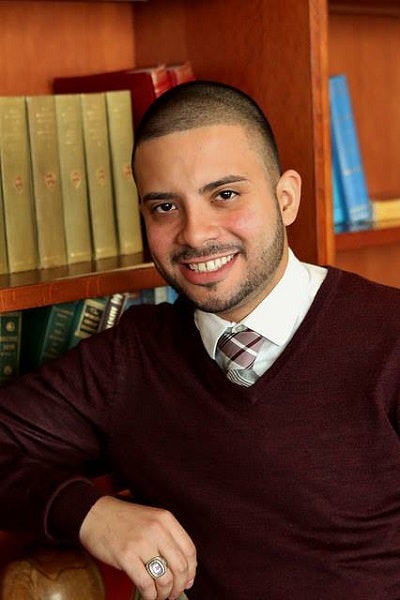 Andrew Martinez
Andrew MartinezAs an alumnus of a Higher Education Administration masters program, and through my involvement in conferences in student affairs, my impression is that the higher education curriculum is disconnected from the lived reality of student affairs professionals. While a number of programs have grown their course offerings to include classes about diversity and equity, the way the courses are structured and experienced determine whether or not they are effective in preparing the current and future workforce of higher education to address issues related to diversity and equity on their campuses. If a program does not have some sort of a diversity course requirement, you can earn a degree without ever having to engage in a conversation about diversity.
Engaging in conversations about identity and privilege is only the first step in preparing people to engage in this type of work. Too often, it is the instructors and students from racially underrepresented groups that speak up and talk about their experiences in education to stir a conversation on diversity and equity in higher education. It takes a skilled facilitator and a patient group of students to engage in serious conversations of privilege, fragility, and the fields inherent identity crisis—having a mission to offer a quality education to anyone while having a history (and current legacy) of being exclusive and unwelcoming. Many programs have required classes that are important for a foundational understanding of higher education in America, but do not allow for opportunities to engage in how it plays out in practice, especially for marginalized, underrepresented groups. For someone whose career may rely on positive course evaluations, you may be discouraged to have a social justice oriented course when the feedback on your course evaluations are filled with “too much time focused on identity” and “as a White student, I felt that this class was focused on making students like me feel guilty because of older White men,” especially if White students make up the majority of your classroom.
I am not ignoring the efforts of the many well-intentioned and effective instructors I’ve had. I did take courses where diversity was the focus and social justice oriented practice was encouraged. There were opportunities for me to engage in conversations surrounding current events in higher education or hypothetical scenarios and how to respond to them in equitable ways. In some ways, they have modeled what I am suggesting all professors who teach aspiring student affairs professionals should do. However, these experiences were in the minority, and often only happened because students demanded more from the program. In fact, despite there being a critical mass of students who wanted to engage in this type of work more, there were a select few that complained our program paid “too much attention on diversity.”
As a graduate student and instructor, I quickly learned that assigning readings from diverse authors, or readings about race and equity is not enough. Not only do you have to rely on students to read and understand the literature, but without any conversations about it, it becomes easy for students to not take in anything from it.
Did my program prepare me to convince Latinx students that they belong even after being told by White men to return to their country? Did my program prepare me to be an on-call counselor for brilliant students that internalize the isolation they feel as an indicator that they do not belong? Did my program prepare me to help Black students feel safe on campus when the campus and local police had a history of shutting down their events, entering their homes for questioning, and/or tasing students when they reached for their identification that was being requested? Does any program discuss the reality of how the bureaucracy at institutions limit what you can and cannot do to support students? How does one navigate being successful in their role when the institution created the position without any support behind it?
As an aspiring professor who is likely going to teach in a higher education program, I aspire to create courses that equip students with the tools necessary to engage in this type of work. However, I know that I must be honest with my students and let them know that the best preparation is to actively engage in this type of work and continue learning from their prior experiences. As a former student affairs professional, I can draw from both my experiences as a student and as an assistant dean to talk through situations I encountered and alternative ways to handle situations like them. For higher education programs that focus on student affairs practice, it is crucial for them to expose their students to the reality of the practice in an increasingly diverse environment. I am committed to this through my own research and practice. I do not think we will ever get it right, but it is still worth a try.
Andrew Martinez is a Ph.D. candidate at the University of Pennsylvania’s Graduate School of Education and research associate at the Rutgers Center for Minority Serving Institutions. You can follow him on Twitter @Drewtle.


















